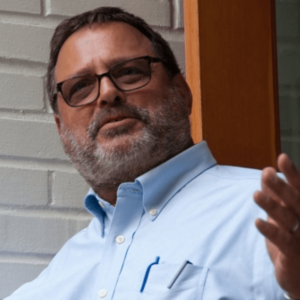Last month, Gov. John Kitzhaber travelled to Springfield, Oregon, to deliver a speech on the “State of the Schools.” In his remarks, the Governor said that “we need a North Star, a compass heading, a destination on which we can focus our aspirations.”
That North Star, the Governor said, ought to be ensuring 100 percent high school graduation and 80 percent of students moving on to secondary education or training. While those ambitious targets —that North Star— are worthy of praise, the plan that Gov. Kitzhaber outlined to get us there starts off on the wrong road.
The plan, which largely follows the advice of a July 2011 report by the Governor’s Oregon Education Investment Team, articulates an “outcomes-based approach” to education.
As OCPP explains in Confront Poverty to Improve Education, the “outcomes-based approach seems flawed on several grounds, but none more glaring than the assumption that education reform can succeed without a plan to reduce poverty.”
The reason is clear:
It’s no secret that children who grow up in poverty face serious obstacles to learning. Compared to better-off children, poor kids are more likely to be exposed to pollution, toxins, noise and crime. They are more likely to experience family instability and separation, as well as hunger and violence.
Such conditions produce chronic levels of stress, impairing children’s cognitive abilities. And research in the field of neurobiology indicates that poverty early in life harms a child’s brain development.
Not surprisingly, children who grow up in poverty lag in their educational achievement compared to better-off kids.
“Fifty years of social science research has confirmed, over and over again, that the best predictor of student achievement is not teacher quality or any other school influence, but the social and economic circumstances of the children,” says Richard Rothstein, a research associate with the Economic Policy Institute and former national education columnist of The New York Times.
While in his speech the Governor did acknowledge the detrimental effect that poverty has on learning, his approach to “transforming” education fails to confront it.
To move us toward the North Star of education, Gov. Kitzhaber needs to lay out a plan to reduce poverty, especially child poverty, which increased yet again last year.
To move us toward the North Star of education, Gov. Kitzhaber needs to become a champion for poverty reduction. He needs to deliver a speech along the lines of the June commencement address delivered by education researcher Dr. Stephen Krashen at Lewis & Clark’s Graduate School of Education and Counseling. In “Broken” Schools?, a speech that garnered national attention, Dr. Krashen minced no words: “Reduce poverty to improve education, not vice-versa.”
Poverty reduction is the way to fundamentally improve education. Let’s hope that Gov. Kitzhaber finds the road that points to the North Star, the road called Poverty Reduction.
This post was originally published on www.blueoregon.com on October 4, 2011. The original post can be found at http://www.blueoregon.com/2011/10/kitzhaber-road-excellence-education-begins-poverty-reduction/.









